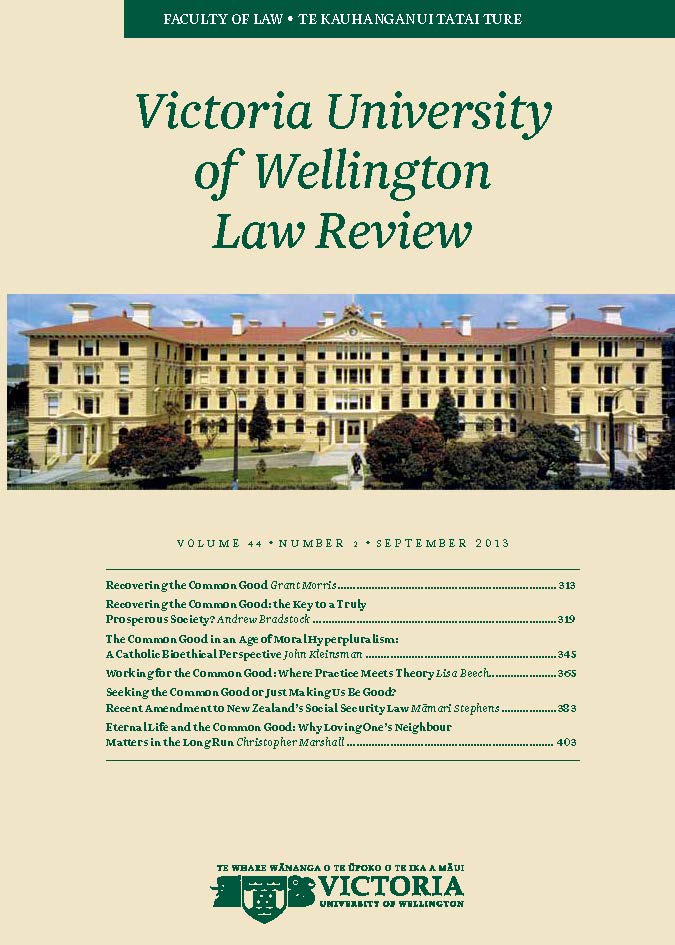Seeking the Common Good or Just Making Us be Good? Recent Amendment to New Zealand's Social Security Law
DOI:
https://doi.org/10.26686/vuwlr.v44i2.4997Abstract
New Zealand's social security system was born out of a vision of society consistent with a definition of the common good informed by Christian ethics. The past 30 years, in particular, have seen fierce ideological battles fought between the left and right over the extent, coverage, and generosity of the system. Yet a remnant of the vision of the common good remains, whereby individuals can have some access, by virtue of social security, to the sufficient conditions of social life to be free enough to find some level of fulfilment in that life. However, the freedom to be good, as is also required by a broad understanding of the common good, is under threat within New Zealand's social security law. Social security law asserts a vision, and not a coherent one, of what it means to be good in New Zealand society. Newly minted social obligations in the Social Security Act 1964 go beyond the purposes of the legislation; being unconnected to relieving need, maintaining fiscal prudence, or even seeking paid employment as a means of achieving welfare. These modern moral obligations ensure that beneficiaries' freedom to choose to live life in a way consonant with the common good is frustrated, if not substantially abrogated, striking the wrong balance between the law's protection of individual autonomy and its implementation of social imperatives in pursuit of the common good.
Downloads
Downloads
Published
How to Cite
Issue
Section
License
Authors retain copyright in their work published in the Victoria University of Wellington Law Review.


